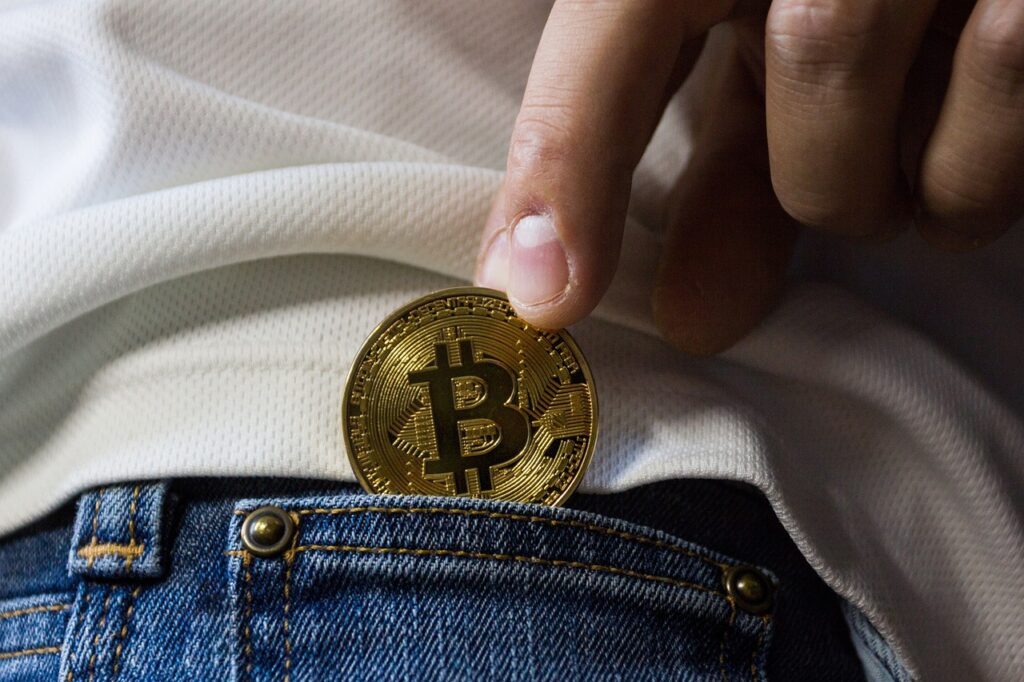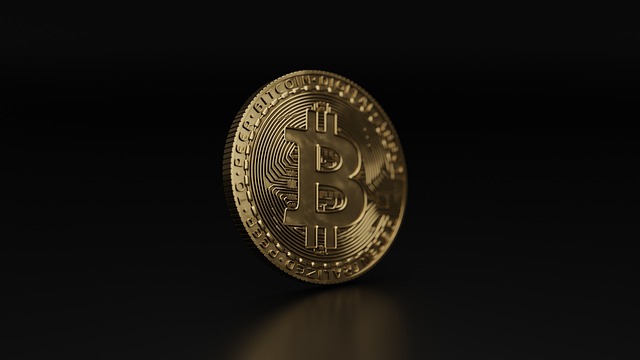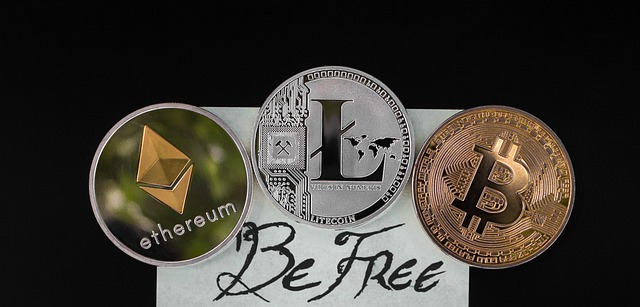DeFi Projects: Innovation and Impact on Finance
DeFi Projects: Innovation and Impact on Finance

Decentralized Finance Projects: Revolutionizing the Financial Landscape
Decentralized finance projects have been making waves in the financial landscape, challenging the traditional systems and offering promising alternatives. These projects, built on blockchain technology, aim to provide open and permissionless financial services to individuals around the world.
One of the key ways decentralized finance projects are revolutionizing the financial landscape is by eliminating intermediaries. In traditional financial systems, intermediaries such as banks and financial institutions play a central role in facilitating transactions and providing services. However, decentralized finance projects allow users to directly engage in financial activities, removing the need for intermediaries. This not only reduces costs but also increases efficiency and transparency in financial transactions. With decentralized finance, individuals have the opportunity to take control of their financial activities and access services without relying on traditional institutions.
Understanding the Basics of DeFi
Decentralized Finance, also known as DeFi, is a groundbreaking concept that aims to revolutionize the financial landscape. At its core, DeFi projects leverage blockchain technology to create a decentralized ecosystem where traditional financial intermediaries such as banks and brokers are replaced by smart contracts and decentralized applications (DApps). This new approach allows for the transparent and secure execution of various financial activities, including lending, borrowing, trading, and investing, without the need for intermediaries or centralized control.
One of the key features of DeFi projects is their open and permissionless nature. Unlike traditional financial systems that require individuals to go through lengthy and often cumbersome processes to access financial services, DeFi projects enable anyone with an internet connection to participate and benefit from the ecosystem. This democratization of access to financial services has the potential to empower individuals globally, particularly those in underserved regions or with limited access to traditional banking services. Additionally, the use of open-source protocols in DeFi projects fosters collaboration and innovation, as developers and users can contribute to the growth and improvement of the ecosystem.
Exploring the Key Features of DeFi Projects
Decentralized Finance (DeFi) projects have gained significant traction in recent years, revolutionizing the financial landscape in ways never seen before. These projects offer a range of key features that set them apart from traditional financial systems. One of the major features of DeFi is the elimination of intermediaries, such as banks or third-party institutions. By leveraging blockchain technology, DeFi projects enable direct peer-to-peer transactions, cutting out the need for middlemen and reducing associated costs. This not only allows for faster and more efficient financial services but also promotes financial inclusivity for individuals who may not have access to traditional banking services.
Another key feature of DeFi projects is the provision of automated smart contracts. These self-executing contracts operate on the blockchain and facilitate various financial activities, including lending, borrowing, and trading. By removing the need for manual involvement and reliance on intermediaries, smart contracts enhance transparency and security. Participants can instantly validate transaction details, reducing the risk of fraud and manipulation. Moreover, these contracts are programmable, enabling the automation of complex financial processes and the creation of innovative financial instruments and services.
As DeFi projects continue to evolve, it is crucial to understand the key features that drive their success. By eliminating intermediaries and leveraging smart contracts, DeFi projects are transforming the way individuals access and interact with financial services. However, the growth of DeFi also presents certain risks and challenges that need to be addressed to ensure its sustainable development. In the following sections, we will delve deeper into these aspects and shed light on the potential impact of DeFi on traditional banking systems and financial inclusion.
The Role of Blockchain Technology in DeFi
Blockchain technology plays a pivotal role in the development and functioning of decentralized finance (DeFi) projects. At its core, blockchain acts as the underlying technology that enables the secure, transparent, and efficient transfer of value and information within the DeFi ecosystem.
One of the key benefits of blockchain technology in DeFi is its ability to eliminate the need for intermediaries, such as banks or financial institutions, by providing a decentralized network that allows individuals to directly interact with each other. This decentralization fosters trust and increases the accessibility of financial services, as it removes the barriers and costs associated with traditional financial systems. Additionally, the immutability of blockchain ensures that transactions are recorded accurately and cannot be altered, further enhancing the transparency and security of DeFi projects. Overall, blockchain technology serves as the backbone of DeFi, enabling the development of innovative financial solutions and democratizing access to financial services.
How DeFi Projects are Democratizing Access to Financial Services
DeFi projects hold the potential to democratize access to financial services, breaking down barriers that have long prevented individuals from participating in traditional banking systems. Unlike traditional financial institutions that often require extensive documentation and have strict eligibility criteria, DeFi projects offer a more inclusive approach. With just a smartphone and an internet connection, anyone can participate in DeFi platforms and access a wide range of financial services.
One of the main ways in which DeFi projects are democratizing access is through the elimination of intermediaries. Traditional financial systems rely on middlemen such as banks and brokers, who not only add costs but also create barriers to entry. DeFi eliminates the need for intermediaries by leveraging blockchain technology, allowing individuals to transact and interact directly with one another.

• DeFi projects break down barriers that have prevented individuals from participating in traditional banking systems.
• With just a smartphone and internet connection, anyone can participate in DeFi platforms.
• DeFi eliminates the need for intermediaries such as banks and brokers.
• Blockchain technology allows individuals to transact directly with one another.
• Individuals have greater control over their financial transactions through DeFi projects.
• Bypassing traditional gatekeepers ensures equal access to financial services for all.
The Potential Risks and Challenges of DeFi
As decentralized finance (DeFi) projects continue to disrupt the traditional financial landscape, it is important to consider the potential risks and challenges that accompany this innovative technology. One of the key concerns surrounding DeFi is its susceptibility to hacking and smart contract vulnerabilities. Unlike traditional financial systems that have safeguards in place, the decentralized nature of DeFi projects opens up avenues for malicious actors to exploit security loopholes. This poses a significant risk to users’ funds and the overall stability of the DeFi ecosystem. While measures are being taken to enhance security protocols, the constant evolution of technology makes staying one step ahead of potential cyber threats an ongoing challenge.
Another challenge inherent in DeFi is the lack of regulatory oversight. Unlike traditional banking systems that are heavily regulated, DeFi operates on blockchains, making it difficult for authorities to monitor and enforce compliance. This lack of regulation has both advantages and disadvantages.

Examining the Impact of DeFi on Traditional Banking Systems
The rise of decentralized finance (DeFi) projects has sparked a significant impact on traditional banking systems. With its unique features and innovative approach, DeFi is challenging the conventional banking model and forcing the industry to adapt to the changing landscape. One key impact is the potential disruption of intermediaries such as banks, as DeFi enables peer-to-peer transactions and eliminates the need for middlemen. This decentralized nature not only reduces transaction costs but also increases efficiency and accessibility for users. By removing the dependence on traditional banking systems, DeFi empowers individuals to have full control over their financial activities and ultimately democratizes access to financial services.
Moreover, the integration of blockchain technology in DeFi projects is revolutionizing the way financial systems operate. Blockchain’s ability to provide secure and transparent transactions ensures trust and eliminates the need for intermediaries to validate transactions. This not only significantly reduces the potential for fraud but also accelerates transaction settlements. Additionally, blockchain’s decentralized ledger system enables real-time monitoring and auditing, enhancing the overall transparency of financial transactions. As a result, traditional banking systems are being pressured to adopt blockchain technology to stay relevant in the evolving financial landscape and cater to the changing needs and expectations of customers. The impact of DeFi on traditional banking systems goes beyond competition; it is reshaping the entire way in which financial services are delivered and consumed.
DeFi Projects and Financial Inclusion: Bridging the Gap
Decentralized Finance (DeFi) projects hold the key to bridging the gap when it comes to financial inclusion. These projects have the ability to empower individuals who were previously excluded from traditional banking services. By leveraging blockchain technology, DeFi projects are offering a range of financial services that can be accessed by anyone with an internet connection and a smartphone. This is particularly important in regions where access to traditional financial institutions may be limited or costly.
One of the main ways DeFi projects are revolutionizing financial inclusion is through the provision of decentralized lending and borrowing platforms. These platforms allow individuals to access loans or lend out their assets without the need for a middleman or traditional financial institution. This is especially beneficial for those who don’t have access to traditional banking services or are excluded due to factors such as limited credit history or lack of collateral. By eliminating the need for intermediaries, DeFi projects are providing more opportunities for individuals to access much-needed funds, thereby bridging the gap between the financially included and excluded.
The Future of DeFi: Opportunities and Innovations
As decentralized finance (DeFi) continues to gain traction, the future holds a world of opportunities and innovations for this burgeoning industry. With its potential to reshape traditional financial systems and democratize access to financial services, DeFi opens up new horizons for individuals and businesses alike. One of the key opportunities lies in the ability to create more efficient and transparent financial solutions. By leveraging blockchain technology, DeFi projects have the potential to streamline processes, eliminate intermediaries, and reduce costs, ultimately leading to a more inclusive and robust global financial ecosystem.
Furthermore, as DeFi projects continue to evolve, we can expect to see an array of innovative financial products and services being developed. From decentralized exchanges and lending platforms to derivatives and insurance products, the possibilities are endless. These innovations have the potential to transform the way we transact, invest, and manage our assets. Additionally, DeFi could pave the way for the creation of entirely new financial systems, where traditional banks and financial institutions are no longer the sole gatekeepers of financial services. This democratization of finance has the potential to empower individuals, especially those who are currently underserved by traditional banking systems, and enable them to have more control over their financial lives.
Stay tuned for the next section of this article where we will delve deeper into the regulatory considerations for DeFi projects. While the future of DeFi holds immense potential, it is important to address the challenges and risks associated with this nascent industry. Understanding the regulatory landscape and building a framework that ensures consumer protection and security will play a crucial role in shaping the future of DeFi.
Regulatory Considerations for DeFi Projects
Compliance with regulatory frameworks is a critical aspect for DeFi projects to thrive in the financial landscape. With the increasing attention and adoption of decentralized finance, regulators across the world are paying attention to this emerging industry. However, navigating through the complex web of regulations can be quite challenging for DeFi projects.
One of the key regulatory considerations for DeFi projects is the issue of Know Your Customer (KYC) and Anti-Money Laundering (AML) requirements. These regulations are in place to prevent illicit activities, such as money laundering and terrorist financing. Implementing robust KYC and AML procedures can help DeFi projects maintain transparency and trust within the ecosystem. Additionally, compliance with data privacy regulations is also crucial to protect the personal information of users, ensuring their confidentiality and security.
What is DeFi?
DeFi stands for Decentralized Finance. It refers to a form of financial system that operates on blockchain technology and aims to provide open and permissionless financial services to everyone.
How are DeFi projects revolutionizing the financial landscape?
DeFi projects are revolutionizing the financial landscape by eliminating the need for intermediaries like banks and enabling direct peer-to-peer transactions. They are also offering decentralized lending, borrowing, and investment opportunities, making finance accessible to a wider audience.
What are the key features of DeFi projects?
DeFi projects offer features like decentralized exchanges, smart contracts, tokenization, and liquidity pooling. These features enable users to trade assets directly, automate financial agreements, create and manage tokens, and pool their funds for increased liquidity.
What role does blockchain technology play in DeFi?
Blockchain technology forms the backbone of DeFi projects. It ensures transparency, security, and immutability of financial transactions. Smart contracts, built on blockchain, enable self-executing agreements without the need for intermediaries.
How are DeFi projects democratizing access to financial services?
DeFi projects are removing barriers to entry by providing financial services to anyone with an internet connection. They are inclusive, enabling individuals from underserved regions and those without traditional bank accounts to participate in the global financial ecosystem.
What are the potential risks and challenges of DeFi?
Some potential risks of DeFi include smart contract vulnerabilities, hacking attempts, and regulatory uncertainties.

How does DeFi impact traditional banking systems?
DeFi projects pose a challenge to traditional banking systems by offering alternative financial services that are faster, cheaper, and more accessible. This could potentially disrupt banking institutions and force them to adapt to new technological advancements.
How do DeFi projects promote financial inclusion?
DeFi projects bridge the gap in financial inclusion by providing services to the unbanked and underbanked populations. They enable individuals to access loans, earn interest on their savings, and participate in global financial markets, regardless of their geographical location.
What does the future hold for DeFi?
The future of DeFi holds immense opportunities for innovation and growth. As the technology matures, we can expect new financial products, improved user experience, and increased adoption. However, regulatory considerations will play a crucial role in shaping the future of DeFi.
What are the regulatory considerations for DeFi projects?
DeFi projects must navigate regulatory frameworks to ensure compliance with existing financial regulations. They need to address concerns related to investor protection, anti-money laundering measures, and potential systemic risks. Clear guidelines and collaboration between regulators and DeFi projects can help foster a sustainable and responsible decentralized financial ecosystem.
Todays Featured Product:
Buy, exchange and grow your crypto securely with a Ledger hardware wallet, combined with the Ledger Live app. It’s never been easier to keep your crypto safe and accessible. Buy direct from Ledger.com and get todays Special Offers Here.




